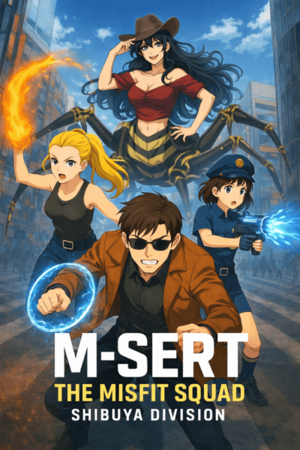Chapter 2:
Chapter 2: The Dream and the Struggle
Variable Chip
The morning light struggled to pierce the layers of smog hanging over District 14. Inside his cramped workshop, Henry stared at the scattered components on his workbench, his mind racing with possibilities. The amplifier had worked—well enough to spark a dangerous optimism—but it was far from perfect. The connections had overheated after just a few minutes of use, and a faint tingling still lingered at the base of his skull, a warning that his chip had been pushed to its limits.
But limits, Henry decided, were meant to be broken.
“Henry, breakfast is ready!” Mia’s voice echoed from the kitchen.
He glanced at the clock on the wall—a relic with a cracked face and sluggish hands. He’d been working all night. Again. Reluctantly, he pushed back from the workbench and shuffled into the kitchen, where Mia sat at their rickety table. A chipped bowl of watery porridge sat in front of her, and another waited for him.
“You look like you fought a drone and lost,” she said, raising an eyebrow.
Henry chuckled and ruffled her hair as he sat down. “Still standing, though.”
They ate in companionable silence, the only sounds the clinking of spoons against ceramic. Henry stole glances at Mia, noting the dark circles under her eyes. She was only fourteen, but the weight of their circumstances was etched into her face. It made Henry’s resolve harden. He couldn’t let her future slip away into the same grim monotony that had claimed so many others in District 14.
“Hey,” Mia said suddenly, breaking the silence. “Did you see the sky last night? There was this bright light—like, really bright. People are saying it wasn’t lightning.”
Henry froze for a fraction of a second before forcing a casual shrug. “Probably just a power surge. You know how unstable the grid is.”
Mia frowned but didn’t press the issue. Henry was grateful. The lightning storm that had supercharged his chip felt like a secret he wasn’t ready to share—not even with her. Not until he understood it.
Later that day, Henry made his way to the junkyard, a sprawling maze of rusting machinery and discarded tech on the outskirts of the district. It was his favorite hunting ground, a place where the refuse of the upper city occasionally found its way down. With luck, he might find parts to stabilize the amplifier’s overheating problem.
As he sifted through the piles of scrap, Henry felt a prickling at the back of his neck. He paused, glancing over his shoulder, but saw nothing out of the ordinary. Still, the sensation lingered—a faint sense of being watched. He shook it off and returned to his search.
A faint whistle broke the silence. Henry turned to see Rafe leaning against a nearby pile of junk, his ever-present smirk firmly in place.
“Scavenging again?” Rafe asked, flicking a cigarette to the ground. “You must love chasing ghosts.”
“Not ghosts,” Henry replied, holding up a dented heat sink. “Potential.”
“Sure,” Rafe said, his tone dripping with mockery. “And what’s the plan this time? Build a rocket to the upper city?”
Henry ignored him and kept searching. Rafe had always been a cynic, a product of a life that offered little room for hope. Henry couldn’t blame him, but he refused to let that same bitterness take root in his own heart.
“Be careful, Henry,” Rafe said, his voice lowering as he stepped closer. “People are talking about the light from last night. Weird stuff like that attracts attention. The wrong kind of attention.”
Henry glanced up, frowning. “What do you mean?”
Rafe hesitated, then muttered, “Just… keep your head down, yeah? The people up there”—he gestured vaguely toward the skyline—“don’t like surprises.”
Before Henry could press further, Rafe turned and disappeared into the labyrinth of scrap. The uneasy feeling in Henry’s chest deepened.
By the time Henry returned home, the sun was sinking low, casting the city in hues of burnt orange. He dumped his findings on the workbench and got to work. The heat sink might help manage the amplifier’s temperature, but the wiring would need adjustments, and he’d have to jury-rig a cooling mechanism from salvaged parts.
Hours passed in a blur of soldering, testing, and cursing under his breath. The workshop grew stifling, but Henry hardly noticed. His thoughts kept circling back to Rafe’s warning. Who could be watching him? And why?
The first test of the modified amplifier ended in failure—an electrical spark and a puff of acrid smoke. Henry coughed, waving away the fumes, and immediately began making adjustments. Failure, after all, was just another step forward.
The second test was more promising. As Henry connected the device to his chip, the familiar jolt coursed through him, sharper this time but bearable. He closed his eyes, focusing on the interface. Data streamed into his mind with a clarity he’d never experienced before. It was exhilarating—and terrifying.
But then the sensation shifted. A faint pulse echoed through his thoughts, a rhythmic pattern that didn’t belong. Henry froze, his heart pounding. The pulse felt… alive. Like someone—or something—was probing the edges of his mind.
With a sharp gasp, Henry yanked the amplifier loose, the connection breaking abruptly. He stumbled back, breathing hard, his vision swimming. Whatever that was, it wasn’t normal.
Mia found him slumped against the wall a few minutes later. “Henry? What happened?” she asked, kneeling beside him.
“Nothing,” he said quickly, forcing a weak smile. “Just pushed the system too hard.”
Mia frowned but didn’t press the issue. Instead, she helped him to his feet and guided him to the cot. “You need to rest,” she said firmly. “You’re not going to help anyone if you break yourself.”
Henry chuckled weakly. “Bossy, aren’t you?”
“Someone has to be,” she shot back, crossing her arms.
As Henry lay back, exhaustion finally taking hold, his mind swirled with questions. What was the pulse he’d felt? Was it connected to the storm, or was there something—or someone—on the other end? And most importantly, could he risk continuing his experiments if it meant drawing attention to himself and Mia?
He didn’t have answers. Not yet. But one thing was certain: the divide between the haves and have-nots wasn’t just technological. It was alive, watching, and it wasn’t going to let him cross it without a fight.




Please sign in to leave a comment.